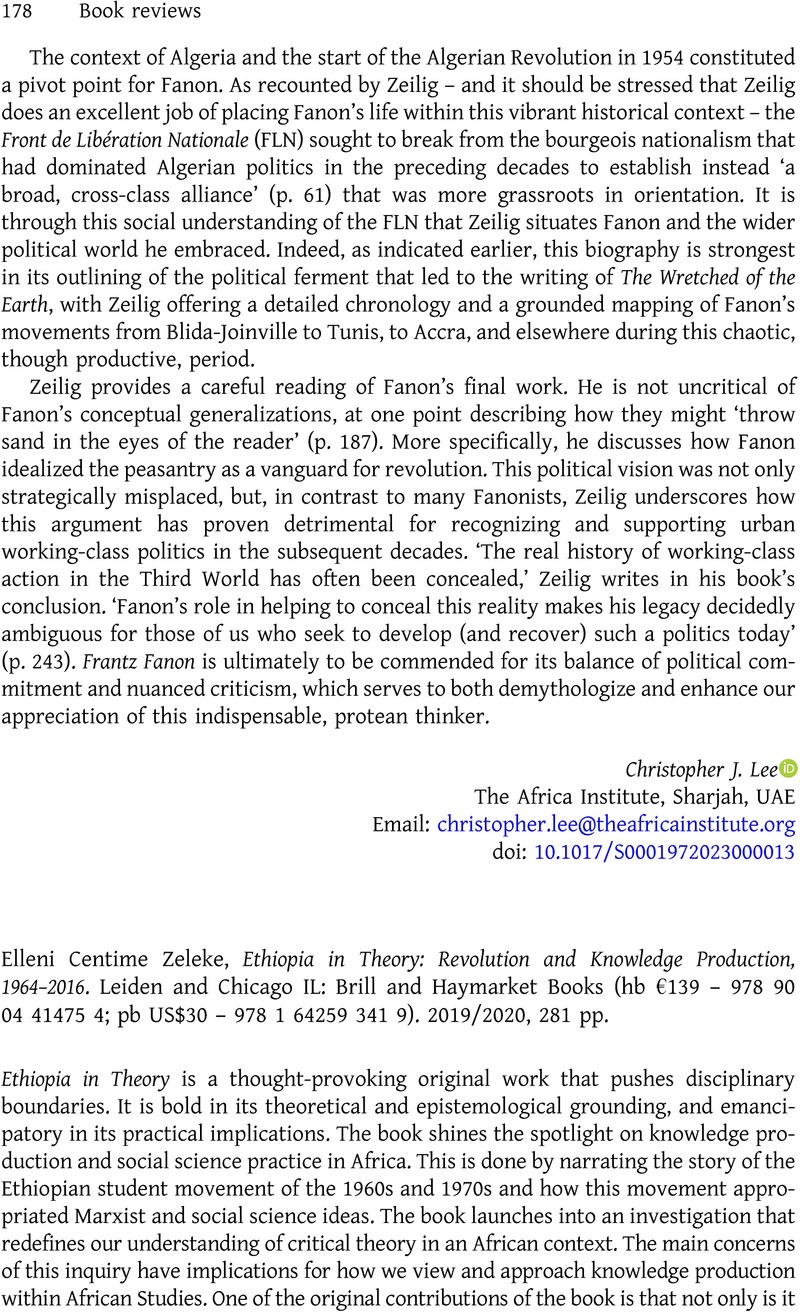No CrossRef data available.
Elleni Centime Zeleke, Ethiopia in Theory: Revolution and Knowledge Production, 1964–2016. Leiden and Chicago IL: Brill and Haymarket Books (hb €139 – 978 90 04 41475 4; pb US$30 – 978 1 64259 341 9). 2019/2020, 281 pp.
Review products
Elleni Centime Zeleke, Ethiopia in Theory: Revolution and Knowledge Production, 1964–2016. Leiden and Chicago IL: Brill and Haymarket Books (hb €139 – 978 90 04 41475 4; pb US$30 – 978 1 64259 341 9). 2019/2020, 281 pp.
Published online by Cambridge University Press: 30 March 2023
Abstract
An abstract is not available for this content so a preview has been provided. Please use the Get access link above for information on how to access this content.

- Type
- Reviews
- Information
- Copyright
- © The Author(s), 2023. Published by Cambridge University Press on behalf of the International African Institute



